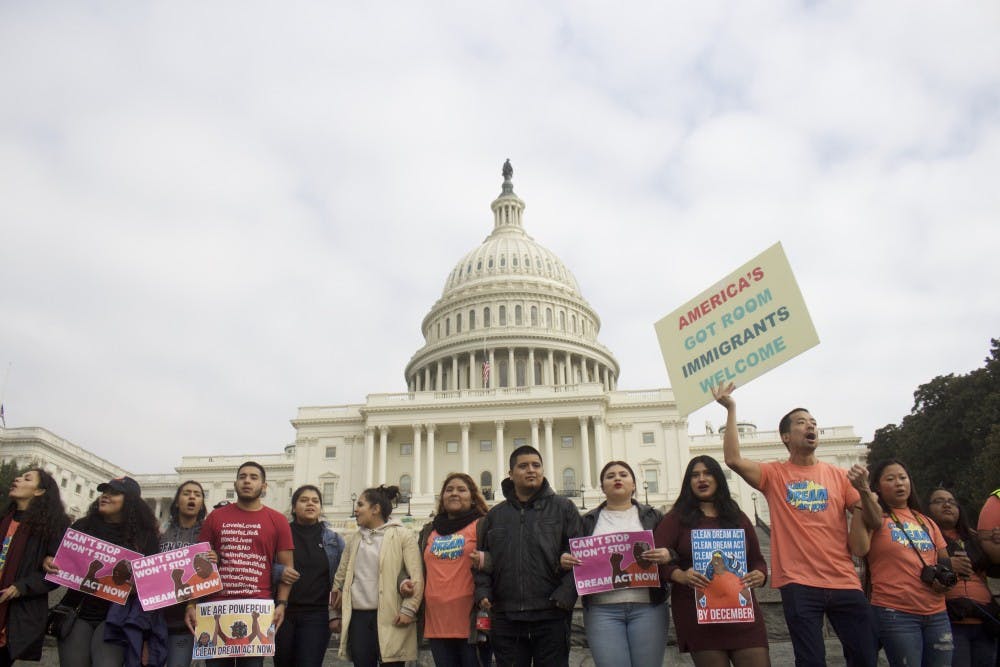DACA recipients at ASU could soon pay reduced tuition thanks to a bill that is being drafted by the state legislature.
Arizona lawmakers are working with the Arizona Chamber of Commerce and Industry to introduce a bill to allow for reduced tuition for Arizona university students who receive protections under the Obama-era Deferred Action for Childhood Arrivals policy.
The push for lower tuition comes almost a year after the Arizona Supreme Court ruled to agree with Attorney General Mark Brnovich that DACA recipients are no longer eligible for in-state tuition.
These students are also not eligible for Pell Grants or federal student loans, as these benefits are only extended to U.S. citizens.
Luis Zambrano, a junior at ASU studying journalism and a DACA recipient, said that the proposed bill could make a world of difference for students with DACA protections.
“This bill would be a great help to DACA students to be able to afford college and continue their higher education," Zambrano said. "It would help take off a lot of the emotional and mental weight of paying for college for DACA students.”
The bill has yet to be officially introduced into the legislature. But in an interview with KTAR, Arizona Chamber of Commerce President and CEO Glenn Hamer said that the bill will create a reduced tuition rate that will not conflict with Proposition 300.
Proposition 300, which was approved by Arizona voters in 2006, said that individuals "without lawful immigration status" do not qualify as in-state students, thus making them ineligible for in-state tuition and federal and state financial aid.
The Arizona Supreme Court decision caused financial and emotional stress for himself and other DACA recipients, Zambrano said.
“I was devastated for a few days," he said. "I kept thinking that I’m really not different from other students. The only difference is that I wasn’t born here.”
Zambrano is a member of the student organization Undocumented Students for Educational Equity. The organization has given him a safe space to connect with other students who face similar circumstances, he said.
Zambrano said that while his father saved enough money to help him pay for college, other students in similar positions aren't so lucky, and many have to “postpone their college plans and miss a semester so they can save money.”
Eileen Diaz McConnell, a professor in ASU's School of Transborder Studies, said that reduced tuition for DACA recipients could allow more students to pursue college degrees.
“I think a lower tuition would allow more DACA students to apply to ASU, attend ASU and complete their degrees," Diaz McConnell said.
Being able to pay a lower tuition would also "absolutely be a psychological benefit" to students with DACA status, she said.
"These students struggle with a lot of challenges other than financial, and people with DACA status have been living in the U.S. for a long time, and many of them consider themselves to be a part of Arizona," Diaz McConnell said.
Herminia Rincon, a spokesperson for ASU, said that the university “cannot speculate on what is being drafted by the state legislature," but that the university provides support for DACA recipients within the student body.
Rincon explained that the University provides a resource called DREAMzone that helps immigrant students at ASU find on-campus and online help, as well as student communities such as USEE.
ASU President Michael Crow showed support for the University's DACA-recipient population when the Arizona Supreme Court ruled in April 2018 that the recipients are ineligible for in-state tuition.
The Court's decision "does nothing to alter our steadfast commitment to making higher education a reality for all Arizona high school graduates, including those who have DACA status," according to a statement The State Press received at the time.
The bill has not been introduced into the legislature yet, but it is being drafted by lawmakers on both sides, according to KTAR.
Reach the reporter at cfusillo@asu.edu or follow @KatieFusillo on Twitter.
Like State Press on Facebook and follow @statepress on Twitter.




